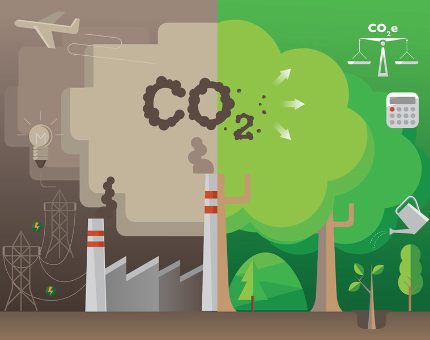Unfortunately, many people do not know that a shortage of CO2 could cause a severe problem. Some environmentalists do not know that its deficiency could also cause negative impacts on health, safety, and medical concerns.
For instance, the brewery industry relies heavily on CO2 to carbonate its beverages. These days, they have been struggling to keep up with the production of CO2. Read on to understand why there is a CO2 shortage.
Factors that are causing CO2 shortages
The impression of most environmentalists is that a CO2 shortage is a good thing. Ironically, a shortage of CO2 could halt some of the basic necessities humans need to survive. Check out the causes of the CO2 shortage below:
Gas prices
The byproduct of ammonia production is CO2. Interestingly, the production of ammonia also relies on natural gas. Consequently, with the war in Russia affecting the price of gas, the production of ammonia has declined. Unfortunately, some companies producing ammonia have shut down.
Ethanol production
CO2 is also a byproduct of ethanol, and its production has also been affected by the surge in gas prices. Europe is hit the hardest, and it has caused the stoppage of ethanol production in most factories. In addition, some of the ethanol plants that stopped production in 2020 have not resumed operations.
What industries use CO2 most?
Amazingly, one of the industries that use CO2 more is the beverage industry. For example, in the United States, the beverage industry accounts for 14 percent of the CO2 used in the country. As a matter of fact, the brewery industry uses CO2 to carbonate their beer and soda.
More so, CO2 is an important part of the supply chain of the food and beverage industry. Therefore, if there’s a shortage in the production of CO2, it could cause a food and drink crisis. This may sound ridiculous to climate change advocates who want to eliminate a sustainable and green environment. But the world still needs the production of CO2 to survive.
The solution to CO2 shortages
One of the solutions to CO2 shortages is the introduction of nitrogen. Like CO2, nitrogen is also a colorless and tasteless gas. More so, it is good for food applications. However, the upfront cost associated with it is the major barrier stopping the food and beverage industry from adopting nitrogen. Nevertheless, some companies have been relying on nitrogen to secure a stable supply until the CO2 shortages ease.
Not to mention, compared to CO2, nitrogen can be generated on-site through compressed air installations. More so, nitrogen is obtained from the combustion of fossil fuels. In addition, some benefits associated with using nitrogen include sustainability, cost-effectiveness, and availability.
Conclusion
A sudden shortage in CO2 could cause a serious collapse of some important industries. Even though environmentalists may find this hard to believe, the world still needs CO2 to survive. To learn more about the climate change and how CO2 could also be a big problem, reach out to Greenly.earth.





